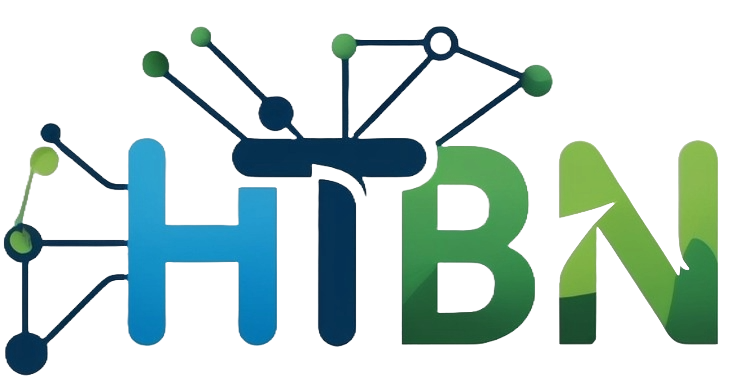Understanding Mobile Developer Personas
The mobile developer landscape is diverse, encompassing a variety of personas, each with unique characteristics, skill levels, and working environments. By identifying these different personas, we can tailor GenAI products for diverse mobile developer personas efficiently and effectively. Generally, mobile developers can be categorized into three main skill levels: beginners, intermediates, and advanced developers.
Beginner developers often possess limited programming experience and may be new to mobile development. They might be seeking straightforward tools and user-friendly interfaces that enable a smoother learning curve. Their primary needs include comprehensive tutorials, guided experiences, and ready-made templates that allow them to build applications without extensive technical demands. Fostering this group involves creating products that facilitate learning and encourage exploration.
In contrast, intermediate developers have a solid foundation but require more specialized resources to refine their skills. This group often works in smaller companies, startups, or as freelancers, where versatility is key. They benefit from GenAI products that offer modular features and support advanced functionalities, enabling them to tackle more complex projects. These developers are also invested in community-driven support, so platforms that encourage collaboration and sharing of ideas are highly valuable.
Advanced developers typically work within established enterprises or innovative startups, contributing to larger teams. They are well-versed in multiple programming languages and frameworks, seeking efficiency and automation in their workflows. Tailoring GenAI products for this persona requires an emphasis on integration capabilities, robust APIs, and analytics features. Advanced developers often operate on the cutting edge of technology, necessitating tools that not only streamline their processes but also enhance their ability to innovate.
By understanding these various developer personas and their specific needs, we can effectively tailor GenAI products for diverse mobile developer personas, promoting a more inclusive and adaptable development ecosystem.
Benefits of Tailoring GenAI Products to Developer Personas
The landscape of mobile development is increasingly diverse, with varying developer personas exhibiting unique needs and preferences. Tailoring GenAI products for these distinct mobile developer personas not only fosters a deeper engagement with the tools but also significantly enhances overall productivity. By customizing features to fit the specific workflows and constraints of different developer types, organizations can provide tailored solutions that resonate well with each group, ultimately promoting a more efficient development process.
One notable advantage of personalizing GenAI products is the boost in user satisfaction. Developers often encounter challenges arising from generic tools that do not account for their individual preferences or styles. By understanding and addressing these nuances through tailored GenAI offerings, developers can experience a smoother, more intuitive interaction with the technology. This personalization encourages not just adoption, but also ongoing use, as developers feel a sense of ownership and alignment with the tools at their disposal.
Moreover, the alignment of GenAI products with specific developer personas can lead to superior project outcomes. When developers use tools that are crafted to suit their needs, they can achieve their goals more effectively, resulting in faster delivery times and a higher quality of work. This ultimately fuels innovation, as developers feel empowered to explore new ideas and approaches within a supportive tool environment. In essence, understanding developer personas serves as a catalyst for improving user experiences, fostering collaboration, and realizing the full potential of GenAI products in mobile development.
Strategies for Tailoring GenAI Products for Developers
Successful design and implementation of GenAI products for mobile developers necessitate a thorough understanding of the diverse personas within the development community. One practical strategy is to adopt a user-centric design approach, which emphasizes the importance of understanding users’ needs, challenges, and workflows. By conducting surveys, interviews, and usability tests, developers can gather insights that inform product features and design. This ensures that the GenAI solutions developed are relevant and tailored to the specific demands of various developer personas.

Another effective strategy involves prioritizing features based on the requirements of different personas. For instance, novice developers may benefit from intuitive user interfaces and step-by-step guidance, while experienced developers might prefer advanced functionalities and customization options. By mapping out the feature spectrum against developer personas, product managers can ensure that the most critical functionalities are addressed first. This targeted approach not only enhances user satisfaction but also encourages adoption, as developers are more likely to engage with products that directly cater to their skills and expectations.
Moreover, establishing ongoing feedback loops is crucial for refining GenAI products over time. Gathering feedback from users after they interact with the product can reveal insights into their experiences and suggestions for improvement. Regularly scheduling feedback sessions or utilizing analytics tools can help product teams identify pain points and areas for enhancement. By implementing changes based on direct user feedback, developers can ensure that their GenAI solutions remain relevant and effective for all user types, thereby fostering a positive development experience across the board.
Case Studies and Success Stories
The development of generative AI (GenAI) products has gained significant traction within the mobile development sphere, as companies recognize the importance of designing tools that cater to diverse mobile developer personas. These tailored solutions not only ease the workload of developers but also enhance the efficiency and effectiveness of their projects. Various companies have implemented successful strategies that exemplify this approach.
For instance, a leading tech firm, XYZ Corp, identified that their mobile developer persona included both seasoned developers and newcomers with varying levels of expertise. To address these differing skill sets, XYZ Corp developed a user-friendly GenAI integrated development environment (IDE) that adjusts its complexity based on user proficiency. They effectively employed machine learning algorithms to analyze a developer’s previous interactions and tailor suggestions and tools accordingly. The outcome was a notable 30% reduction in time spent on project setups, demonstrating the efficacy of customizing GenAI resources based on user profiles.
Another exemplary case involves ABC Solutions, which focused on fostering collaboration among mobile teams. The company created a GenAI tool that promotes code mobile developer personas sharing and reuse among developers. By tailoring this product to facilitate seamless communication, ABC Solutions recognized that fostering a mobile developer personas collaborative ecosystem enhanced overall productivity and innovation. They reported a 25% increase in project completion rates, revealing how effective integration of tailored GenAI solutions can empower diverse developer personas and improve workflows.
mobile developer personas Furthermore, a startup named Innovatech launched a hybrid mobile application framework using tailored GenAI settings that enabled developers to select preferred programming languages and libraries based on their backgrounds. This customization improved developer satisfaction and project outcomes, further highlighting the transformative mobile developer personas impact that harnessing tailored GenAI products can have on mobile development. Each of these case studies illustrates that a nuanced understanding of developer personas and their unique needs leads to better tools and successful project outcomes, showcasing the promise of tailored GenAI innovations in the field.
May Be You Also Read

